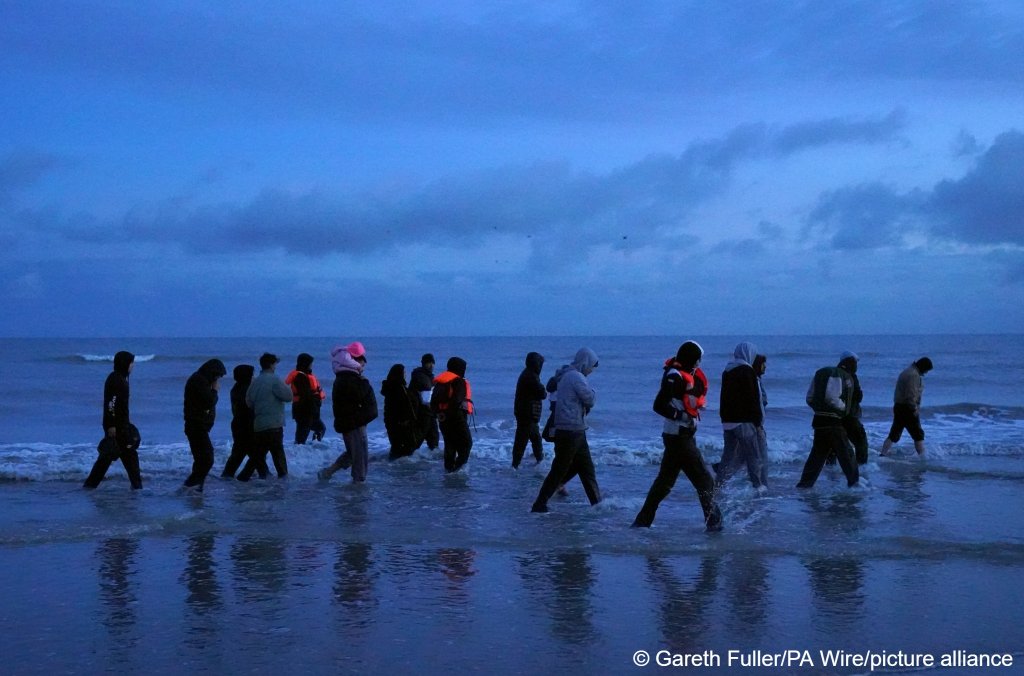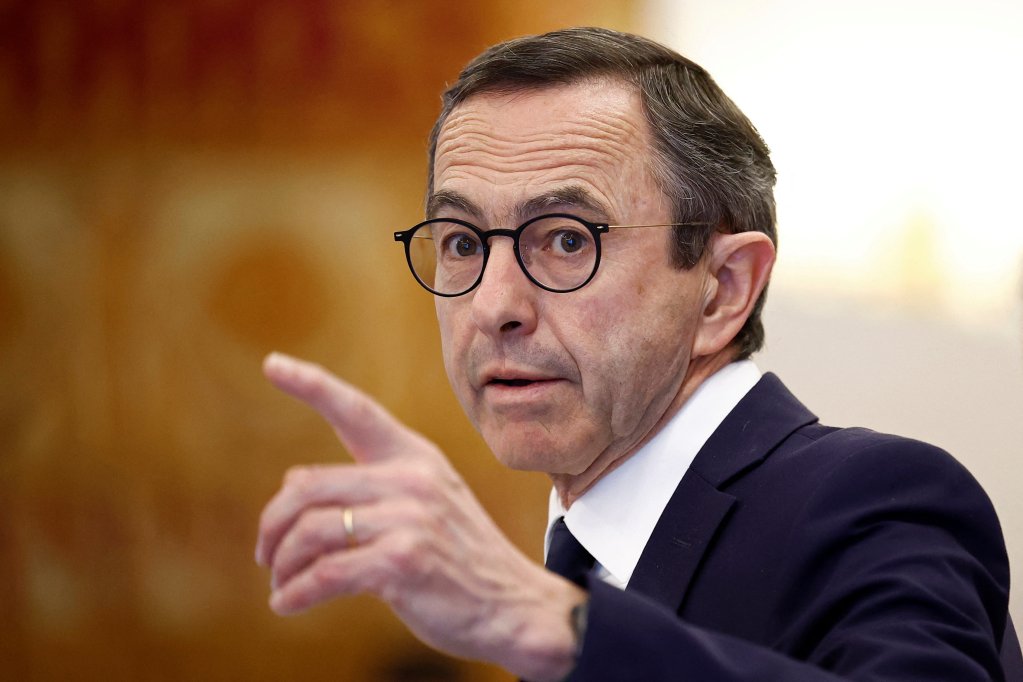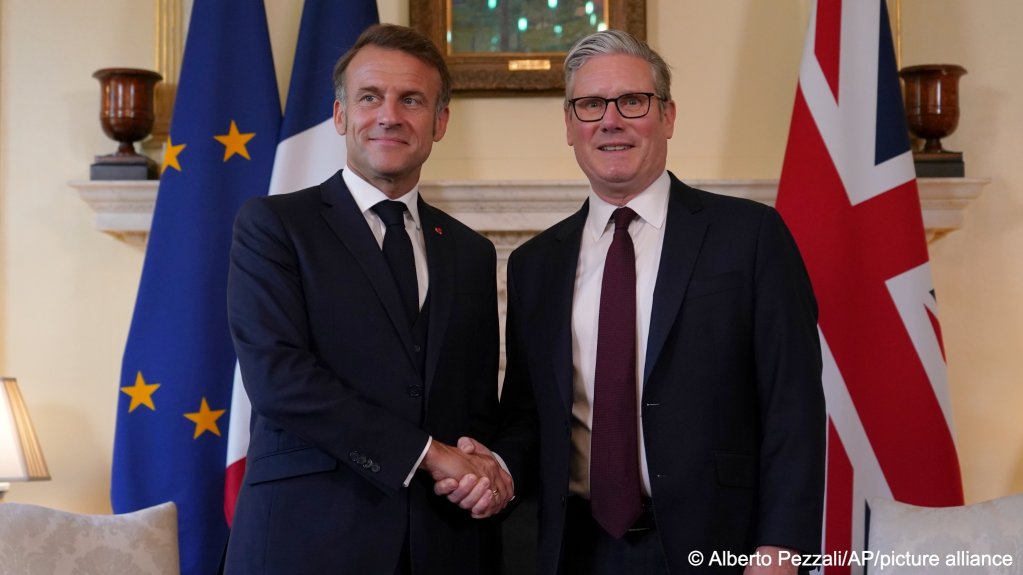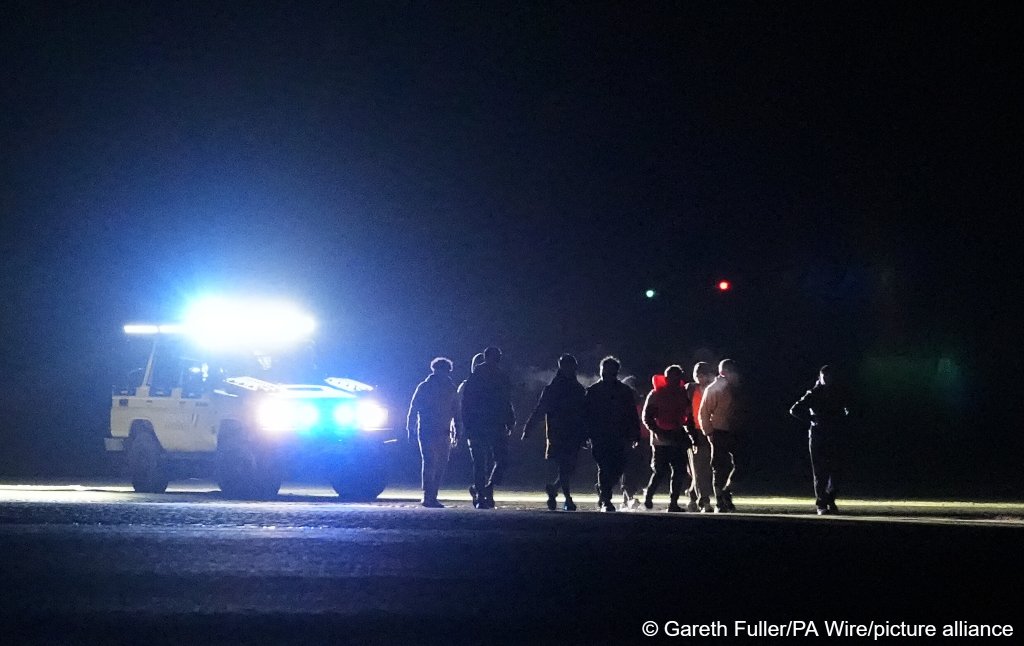An Iranian man removed to France under the UK's new "one in, one out" migration deal has been deported again after returning by small boat, raising questions over the policy’s effectiveness and the UK’s cooperation with France.
An Iranian man who was sent to France under the UK’s new "one in, one out" migration deal has been deported for a second time after crossing the English Channel for a second time, renewing scrutiny of the government’s flagship returns policy and its fragile cooperation with France.
The man, who says he was trafficked and abused by smugglers in northern France, was first removed to France on September 19 under the bilateral arrangement aimed at deterring small boat crossings. Less than a month later, he returned to the UK by small boat and was detained on arrival on October 18.
Read AlsoWhat happens to migrants removed to France under the 'one-in, one-out' deal?
UK government defends scheme
On Wednesday (November 5), the Home Office confirmed his second removal, saying his detection through biometric checks demonstrated that the system was functioning as intended.
Interior Minister Shabana Mahmood said in a statement Wednesday that the man "had been detected by biometrics and detained instantly."
"His case was expedited, and now he has been removed again,” she added.
"Anyone looking to return to the UK after being removed under the UK-France agreement is wasting their time and money... if you try to return to the UK you will be sent back."

The case has been a considerable setback for the scheme, which was designed to discourage the tens of thousands of migrants who cross the Channel each year to southeast England.
The man told The Guardian he had been "terrified" while in France and "did not feel safe to stay there," describing being "forced to work, abused and threatened with a gun" before his first crossing.
Strains in cross-Channel cooperation
The Iranian man’s return to the UK comes as France appears to be pulling back from earlier promises to tighten sea patrols. According to BBC reporting, Paris has placed on hold a proposed "maritime doctrine" that would have allowed patrol boats to intercept overcrowded inflatables and tow them back to shore.
Sources in France described the plan as "a political stunt" now shelved amid political turmoil and the departure of former interior minister Bruno Retailleau, who had championed the tougher policy. Police union representative Jean-Pierre Cloez said there had been "no change in the way we do things," citing safety concerns and lack of resources.

Despite the policy uncertainty, boats continue to launch from northern France almost daily. Volunteer rescuers told reporters they are often asked to escort overcrowded dinghies toward British waters rather than stop them, as French law prevents intervention unless migrants request help.
Read AlsoUK: Home Office flies back 16 migrants to France on one flight
Political pressure
The Labour government faces growing criticism as small boat arrivals this year have already exceeded 2024’s total, putting 2025 on track to be the second-highest year on record after 2022.
Critics argue the Iranian man’s repeated crossings expose flaws in the new policy, saying it fails both to deter migrants and to protect vulnerable people. The government has faced accusations of being in "total chaos," while ministers insist his swift detection on arrival "shows the system is working." The Home Office said it will continue to remove anyone who re-enters the UK irregularly after being sent to France.

The deal, agreed by Prime Minister Keir Starmer and French President Emmanuel Macron, allows the UK to deport migrants who arrive illegally in exchange for taking an equivalent number who apply through official routes. According to government figures, 94 migrants have been returned to France, while 57 have arrived legally in the UK under the arrangement.
Read AlsoHumanitarian groups challenge UK-France migration deal in French court
Fragile partnership with France
Human rights advocates have raised wider concerns about the UK-France returns scheme, warning that many people sent back under the agreement face violence and exploitation in France. They report that some returnees have been left destitute and living on the streets, and argue that the policy risks driving people to attempt further dangerous crossings rather than deterring them.
However, the French interior ministry has rejected claims that returnees face poor conditions, saying they are provided accommodation while their cases are processed and can access voluntary return programs. Officials added that asylum cases are handled in accordance with EU law, including "Dublin" transfers for those previously registered elsewhere in the bloc.

Observers say the episode illustrates the fragility of the UK-France partnership, as well as contradictions within Britain’s migration strategy. With France reluctant to risk aggressive maritime enforcement and safe asylum routes still limited, experts warn that crossings are likely to continue.
For many, the Iranian man’s case has become emblematic of a wider paradox: a policy meant to stop smugglers that may, in practice, drive vulnerable people back into their hands.
Read AlsoInvestigation examines why Channel crossings remain high despite punitive UK measures
With AP and dpa
